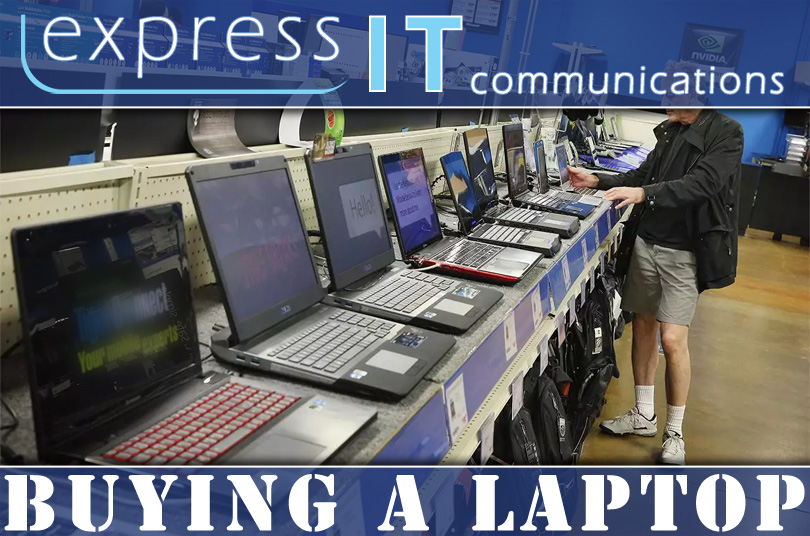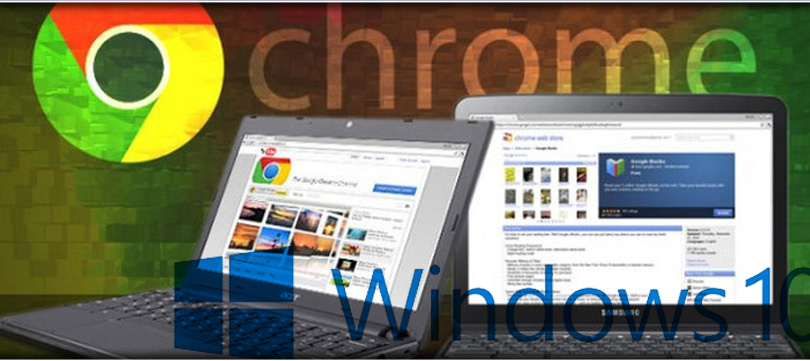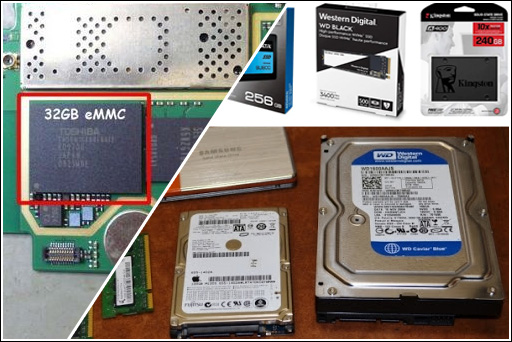|
|
 |
||||||||||||||||||
|
||||||||||||||||||
Laptop buying guide - Choosing a laptop The global Covid-19 pandemic has seen many items of technology increase in price. None more so than Laptops. Laptops are now going back to prices last seen over 15 years ago. It seems the days of €300 cheap laptops have gone. Of course with the price increase you are getting higher spec machines with the latest hardware. Fast processors, large RAM and SSD’s are now more common and lower spec machines are harder to come by. What are the options?To cater for lower budgets there is currently a big push for sales of “Chromebook” laptops. These are not what you would call "proper" laptops. The cheap ones are under powered and do not have the capabilities of a proper Windows laptop or MacOS MacBook. Saying this you can get a reasonably decent Chromebook for around the €350 mark. Things to consider:The main consideration when buying a laptop is to ask yourself what you want the laptop for. What do you want it to be able to do? For basic use of internet browsing, emails, social media, watching/streaming movies and online banking and shopping, a Chromebook will probably be sufficient. But saying that so will any half decent tablet or mobile phone. If you want to do more with your laptop, such as photo or video editing, graphic designing, website management, gaming, storing music and film, adding bespoke software for things such as education, music production, karaoke, e-commerce etc. then a “proper” laptop is going to be required. 
Operating System:When buying a laptop, you would normally choose Windows (PC) or Apple (MacBook). You would get the laptop and the operating system (OS) is pre-installed. This is no longer the case. Look to see which OS is installed on the machine. Many laptops are now sold without a pre-installed OS. Or with a basic OS such as FreeDOS. This will not be sufficient for you. Chromebooks have their own OS. They do not run on Windows. If you buy a Chromebook it is not windows and many of the programs you would normally use are either not available or compatible. If you get no OS installed or FreeDOS then this is no good for you. You will need to install Windows OS before you can start normal use. A licenced copy of Windows 10 can be expensive and time consuming/problematic to install. If you want an Apple MacBook as your laptop of choice you will get the preinstalled MacOS that the machine was manufactured for.
Manufacturer:With the rising prices of laptops, you will now see many smaller companies offering different makes and models. Some of these are OK but mostly we find them to be poorly made, using cheaper components, not offering the required level of warranty etc. Some people will have bad experiences with these “inferior” laptops, others will not, and all will be well. The main brands of laptops to buy are from Acer, Asus, HP and Lenovo. There are also laptops from Samsung, Sony, Dell, MSi, LG and Toshiba. Buying one of these is acceptable. The brands offering cheap laptops we have found are Prixton, Chuwi, Teclast, InnJoo, BMax and Talius. We would not recommend these. Screen Size:
These screen sizes were seen by some as being to big to be portable and so the netbook was born. Netbooks are scaled down versions of laptops designed to be more portable. Often with lower specifications to make them cheaper. The standard sizes for Netbooks was either 10.1” or 11.6”. Over the last few years there has been a demand for something in between. All the big manufacturers released what were referred to as UltraBooks. These were slimmer and slightly smaller screened, but with particularly good specifications available. These were screen sized from 13” to 14.5”. These slightly smaller sized screens are now quite normal, and many of the Chromebooks come with these sized screens. Storage:This is the amount of space for data that is available on your laptop. This storage space is needed for the OS, all programs that you run, and saving any documents, pictures, files, music, films etc. although these items can also be stored on external storage such as USB flash drive, external hard drive or SD card. Back in the day all laptops came with a Hard Disk Drive (HDD) measured in size by Gigabytes (Gb). Over the last few years, the capacity of these drives have been increasing. The norm was around 320Gb, then it increased to 500Gb and 750Gb and now a 1000Gb (1Tb) is common.
Smaller Netbooks and Chromebooks may come with HDD or SSD but the norm now is for the storage to be contained on an eMMC flash chip. You will see many of these with 32Gb eMMC or perhaps 64Gb eMMC. Depending on the OS you run and how many programs you use you will soon find that you run out of space. On many new Chromebooks and laptops the eMMC storage chip is fixed and cannot be changed so you (and technology) will soon outgrow the laptop. Having a changeable storage media (removable HDD or SSD) is the way to go. You can upgrade to a larger size, swap from HDD to SSD and also remove and replace it if the computer gets damaged. With the fixed flash storage this is not possible. If you run out of space, or it breaks, your laptop will become unusable with no way of repair. CPU, GPU and RAM
RAM is the thinking memory of your computer. The more RAM the more things you can be doing and the faster you can do them. A 1Gb RAM laptop was once king of the hill. Nowadays you do not really want anything less than 4Gb. This is because programs are much more complicated, file sizes are so much bigger etc. Some new laptops come with fixed RAM chips. This means that the laptop cannot be upgraded, or if RAM fails it cannot be repaired. It is best to look for a laptop with removable RAM that can be replaced, changed, upgraded. GPU is the graphics processor chip. This, like the CPU, is normally nowadays built onto the motherboard. Most laptop users will not be too bothered about the different types of GPU. The standard GPU incorporated with the CPU will suffice. Unless you are a gamer and want a gaming laptop. High specification graphics processors on a laptop such as a GeForce RTX 2060 can add up to 500€ to the price. Other items to consider:Input and output methods on a laptop are crucial. Smaller laptops have a single keyboard without the numeric keypad, other higher spec machines will have the numeric keypad to the right of the main keys. Choose which you need. Interface and connectivity can also play a major part. Are you going to use your laptop solely with WiFi connectivity. Many laptops no longer come with a LAN cable connection socket. You can buy USB LAN connectors but this will take up one of your USB ports. How many USB ports do you need on the laptop? A lot of laptops, especially entry level budget laptops, do not have an optical drive. An optical drive being where you insert a CD or DVD. Do you need one? Can you make do with an external DVD drive connected by USB cable? What other connectivity do you need. If you want to connect to an external monitor, projector or TV the chances are you will need an HDMI output capability. Again USB adapters can be purchased if your laptop does not have one. 
Battery life and weight can also be a factor. The main purpose of a laptop is that it is portable. If you are not going to be moving it around or carrying it, or using it on battery then should you really not get a desktop PC. Long battery life depends on its capacity (measured in mAH) and the usage. Get a laptop where the battery can easily be replaced. Make sure you can easily adjust the brightness of the screen to reduce battery usage. SummaryOur recommendation would be to come in and have a chat with us in store to determine the requirements for your laptop. In general, a Chromebook is not recommended. Unless you have extremely limited use for the laptop and only want to use it for web surfing, email, social media and streaming. 
A laptop that is upgradable/repairable in terms of storage and RAM is also recommended. Stick with a brand you have heard of that will have recognised warranty and easy replacement parts. Choose a removable HDD, or even better SSD. Do not opt for eMMC Flash storage because you will run out of space and not be able to install the programs you want. If the drive fails you will not be able to repair, upgrade or replace. Check the OS. Does it come preinstalled with Windows 10 (marked as something like W10 Home). Do not buy a laptop with “No Operating System” or “FreeDOS”. It is just sad times now that to get anything near to the recommendations made above you will need to spend well over €400 for a basic entry level laptop. Buy a good laptopWe hope you found this LAPTOP BUYING GUIDE informative and useful. We advise people, and sell many laptops from our computer shop in Albir, Spain. We have many in stock and new models are arriving all the time. There are big price fluctuations at the present time so it is best to call for current model selection and price. Take a look at our laptops page for stock guideance, prices and to order online.  |
||||
|
The computer shop Albir is here for all your computer sales, repairs and advice. We have a full stock of accesories and parts for mobile phones, laptops, PC, tablet etc. We also do Apple repairs in Albir. We sell hard drives, headphones, cables, connectivity, WiFi, keyboards, mouse and sound systems. We also sell TV and TV systems for IPTV. English TV in Spain. Norsk TV i Spania. Nederlandse TV in spanje. See our IPTV Spain Packages. |
|
||||||||||||||||||||||||||||||||||||||||||||||||
© 2010. Website Design, Build and Hosting by Express IT Communications CB






 The standard size of a laptop screen was set at around 15” (inches). The most common laptops of all brands would be supplied with a 15.6” LED screen. Some people wanted larger sized screens, especially for gaming so the standard larger screen was set at 17.3”.
The standard size of a laptop screen was set at around 15” (inches). The most common laptops of all brands would be supplied with a 15.6” LED screen. Some people wanted larger sized screens, especially for gaming so the standard larger screen was set at 17.3”. Recently with price reductions of superior technology we have seen a rise in demand for Solid State Drives (SSD). The SSD is similar to the HDD but is better as there is no physical disk or breakable moving parts. Access to the stored data is much faster meaning that laptops with an SSD instead of HDD will run faster. SSD is more expensive, or you will have less capacity. Common sizes for SSD are 128Gb, 256Gb or perhaps 512Gb. This is enough for your OS and programs that you want to run.
Recently with price reductions of superior technology we have seen a rise in demand for Solid State Drives (SSD). The SSD is similar to the HDD but is better as there is no physical disk or breakable moving parts. Access to the stored data is much faster meaning that laptops with an SSD instead of HDD will run faster. SSD is more expensive, or you will have less capacity. Common sizes for SSD are 128Gb, 256Gb or perhaps 512Gb. This is enough for your OS and programs that you want to run. This is the beating heart of your computer. What makes it run. The first part is the CPU (processor). These are manufactured by Intel or AMD. There are many different types and you pay more money for higher threads and cores and speed. This greatly affects how fast your computer runs. The more complex and amount of activities you run the better the processor you will need. For general home use a Dual Core 2.0GHz type of processor will be fine.
This is the beating heart of your computer. What makes it run. The first part is the CPU (processor). These are manufactured by Intel or AMD. There are many different types and you pay more money for higher threads and cores and speed. This greatly affects how fast your computer runs. The more complex and amount of activities you run the better the processor you will need. For general home use a Dual Core 2.0GHz type of processor will be fine.